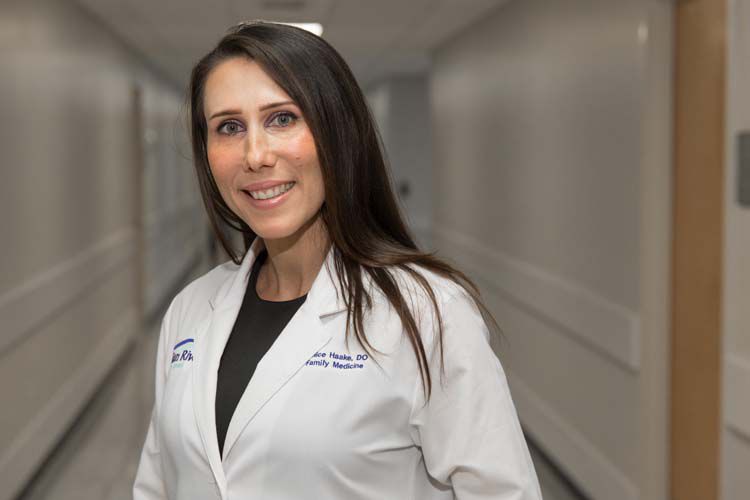
Approximately 24 million Americans are currently so overweight that they qualify for one of the four major bariatric weight-loss surgeries or procedures now being offered in this country.
The American Society of Metabolic and Bariatric Surgeons says those procedures include the gastric bypass, the sleeve gastrectomy, the adjustable gastric band and the biliopancreatic diversion with duodenal switch.
But Dr. Felice Haake of the Indian River Medical Center’s new comprehensive weight-loss program takes a different approach. She is a “medical bariatrician,” a relatively new and still fairly small sub-specialty, and she doesn’t perform any of the above procedures.
“A medical bariatrician is a physician who’s certified in treating and diagnosing overweight and obesity,” explains Haake. “We approach patients from a medical standpoint, looking at their medications, their chronic medical conditions and perhaps even undiagnosed conditions that might be contributing to or causing their obesity or other weight problems.”
In other words, Haake diagnoses, teaches and – perhaps most importantly – listens.
“Most patients who struggle with weight,” Haake continues, “have a story. Everyone’s got a story. Where it started. When it started. If they’ve struggled with weight since they were a kid. And so, getting to the root [of their problem] helps bring everything to the surface so they can start working on it. It’s important.”
Pausing briefly, Haake adds, “I always tell patients I don’t work with their limitations, I work with their abilities” in order to overcome weight problems in general and obesity in particular.
The term obesity is a loaded one, and it is often misunderstood.
As WebMD points out, “If doctors tell you you’re obese, they’re not trying to make you feel bad. They’re using a specific medical term to talk with you about your weight. The word obesity means too much body fat. It’s usually based on your body mass index or BMI, which compares your weight to your height.”
But the reason so much attention is paid to weight these days isn’t about waistlines or dress sizes.
It’s because obesity is strongly linked to the onset of type 2 diabetes, heart disease, high blood pressure, arthritis, sleep apnea and stroke.
In other words, some of the biggest killers in the country often come as part of a package deal with those extra pounds.
“Almost all of my patients that belong to an obese category have at least one comorbidity … [such as] hypertension, pre-diabetes, heart disease, hyperlipidemia or high cholesterol lipid abnormalities,” says Haake. “Most of them have reflux and depression. These are all comorbidities. So I would say 80 to 90 percent of my patients have at least one associated comorbidity.”
Devising diet solutions, workable exercise plans, improving cardiovascular health and managing medications all are parts of Haake’s mission.
And, for the record, Haake adamantly says a magic pill for weight loss simply doesn’t exist. “For me, medications are an adjunct and they’re only for the appropriate patients. Not every patient who walks in my door gets handed a medication.”
Haake also says gastric bypasses and other surgeries are not a panacea for weight problems.
Says Haake: “Let me tell you something about obesity: It’s a chronic condition just like eczema. You don’t cure eczema. You manage it. You manage obesity too. So this is life-long. You’re going to manage this.”
The IRMC comprehensive weight-loss program is just now starting its mission. but Haake has no doubts about how she’d like to see it evolve.
“I would love to see this build into a full program like the program I came from in Virginia,” says Haake, “where it was surgeons working alongside the medical bariatrician, working alongside the dietitian, working alongside an exercise physiologist, working alongside a behaviorist.”
Dr. Felice Haake is a medical bariatrician and family practitioner at the Indian River Medical Center. Her office is in the new Health and Wellness building at 3450 11th Court, Suite 201. The phone number is 772-794-3364.



